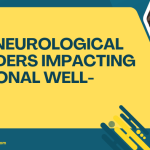Table of Contents
- Understanding Neuropsychiatry
- The Brain-Behavior Connection
- Neurotransmitters and Mental Health
- Neuroimaging Techniques
- The Future of Neuropsychiatry
Understanding Neuropsychiatry
Neuropsychiatry sits at the fascinating intersection of neurology and psychiatry, focusing on how brain function impacts behavior and mental health. This branch of medicine examines neurological conditions with psychological implications, such as traumatic brain injuries, epilepsy, and dementia.
Neuropsychiatry helps demystify conditions like depression, anxiety, and schizophrenia by exploring their underlying neural pathways. This holistic view encourages a more comprehensive treatment approach, integrating both psychological and medical perspectives.
FAQ: What conditions does neuropsychiatry address?
Neuropsychiatry addresses a variety of conditions, including:
- Trauma-related disorders: PTSD and TBI
- Mood disorders: Depression and bipolar disorder
- Psychotic disorders: Schizophrenia
- Cognitive disorders: Alzheimer’s and other dementias
For a deeper dive into neuropsychiatry, you can explore resources from the American Neuropsychiatric Association.
The Brain-Behavior Connection
The brain plays a pivotal role in shaping our thoughts, emotions, and behaviors. Neuropsychiatry relies heavily on understanding this connection, as it provides insights into how brain dysfunction can lead to psychological symptoms.
Understanding the brain-behavior connection can illuminate the root causes of various psychological conditions, leading to more effective treatment strategies.
The Role of Brain Regions
Different areas of the brain contribute to specific functions:
| Brain Region | Function | Associated Disorders |
|---|---|---|
| Prefrontal Cortex | Decision-making, impulse control | ADHD, depression |
| Amygdala | Emotion regulation | Anxiety disorders, PTSD |
| Hippocampus | Memory formation | Alzheimer’s, depression |
Understanding these regions can help clinicians design targeted interventions, whether through medication, therapy, or lifestyle adjustments.
FAQ: How can brain injuries affect behavior?
Brain injuries can disrupt normal brain function, leading to cognitive, emotional, and behavioral changes. For instance, a TBI can impair judgment and increase impulsivity, while strokes can alter emotional regulation.
For more insights into the signs of neurological issues and conditions, check out Top 7 Signs You Need Neuro Care for Brain Health.
Neurotransmitters and Mental Health
Neurotransmitters are chemical messengers in the brain responsible for transmitting signals between neurons. They play a crucial role in regulating mood, sleep, and cognition, making them vital in understanding neuropsychiatric conditions.
Imbalances in neurotransmitters can significantly impact mental health. Understanding their roles can provide insights into the treatment of various disorders.
Key Neurotransmitters
| Neurotransmitter | Role in Mental Health | Imbalances Associated With |
|---|---|---|
| Serotonin | Mood regulation, sleep, and appetite | Depression, anxiety disorders |
| Dopamine | Reward, motivation, and pleasure | Schizophrenia, Parkinson’s disease |
| Norepinephrine | Stress response and arousal | ADHD, anxiety disorders |
Imbalances in these neurotransmitters can lead to various mental health disorders. Treatments often aim to restore balance, using medications like SSRIs to increase serotonin levels or antipsychotics to regulate dopamine.
FAQ: Can lifestyle changes impact neurotransmitter levels?
Absolutely! Regular exercise, a balanced diet, and adequate sleep can enhance neurotransmitter production. For example, omega-3 fatty acids found in fish are known to boost serotonin levels, contributing to improved mood. For more on how nutrition affects brain health, visit Top 5 Foods to Enhance Your Brain Health Naturally.
Neuroimaging Techniques
Neuroimaging has revolutionized our understanding of the brain and its functions. Techniques like MRI and PET scans allow researchers and clinicians to visualize brain structures and activity, providing invaluable insights into neuropsychiatry.
These imaging techniques not only assist in diagnosis but also enhance our understanding of how various conditions affect brain function.
Key Techniques
- Functional Magnetic Resonance Imaging (fMRI): Measures brain activity by detecting changes in blood flow, allowing researchers to see how different tasks affect brain function.
- Positron Emission Tomography (PET): Examines metabolic processes and can show how neurotransmitter systems work in real-time.
- Electroencephalography (EEG): Records electrical activity in the brain, helping diagnose conditions like epilepsy and sleep disorders.
These tools enhance our understanding of mental health disorders, leading to more accurate diagnoses and tailored treatments.
FAQ: How do neuroimaging techniques aid in diagnosis?
Neuroimaging techniques help visualize abnormalities in brain structure or function, aiding in the diagnosis of conditions like schizophrenia or Alzheimer’s and allowing for precise treatment planning. For more on diagnostic methods, check out Top 5 Methods Neurologists Use to Diagnose Disorders.
The Future of Neuropsychiatry
The field of neuropsychiatry is evolving rapidly, fueled by advancements in technology and research. From personalized medicine to neurofeedback therapy, the future holds exciting possibilities for improving mental health treatment.
As we look ahead, the integration of technology and personalized approaches will likely transform the landscape of mental health care.
Emerging Trends
- Genetic Research: Understanding the genetic basis of mental disorders can lead to more effective, tailored treatments.
- Wearable Technology: Devices that monitor physiological responses can provide real-time feedback and help manage conditions like anxiety.
- Telepsychiatry: Remote consultations have made mental health services more accessible, especially for individuals in underserved areas.
As research continues to unfold, we can expect more innovative approaches to understanding and treating mental health conditions.
FAQ: What can I do to stay informed about neuropsychiatry advancements?
Staying informed is as simple as following reputable sources in the field. Consider subscribing to journals like the Journal of Neuropsychiatry and Clinical Neurosciences or visiting websites like the National Institute of Mental Health. Also, for insights on the essential tools in neuro care, you might find Top 5 Essential Tools in Neuro Care You Should Know helpful.
Conclusion
The science behind neuropsychiatry is a complex yet fascinating field that combines neurology and psychiatry to offer a comprehensive understanding of mental health. From exploring the brain-behavior connection to leveraging neuroimaging techniques, the insights gleaned from neuropsychiatry can lead to better diagnoses and treatment options.
As we embrace the future of this discipline, the potential for improving mental health care is truly exciting.
Remember, whether you’re a patient, a caregiver, or just curious about the brain, understanding neuropsychiatry can empower you to navigate the complexities of mental health more effectively. For additional resources on neuro care, visit Neuro Care: A Guide to Brain Health.






